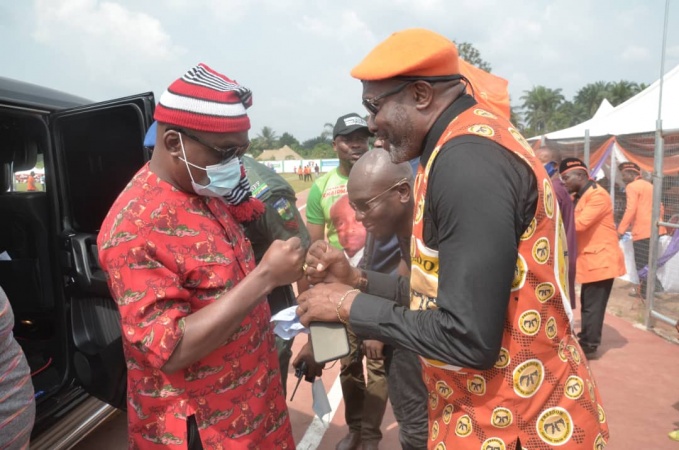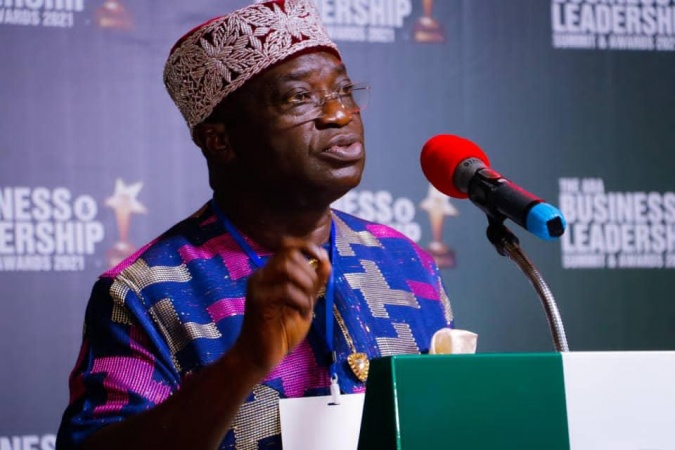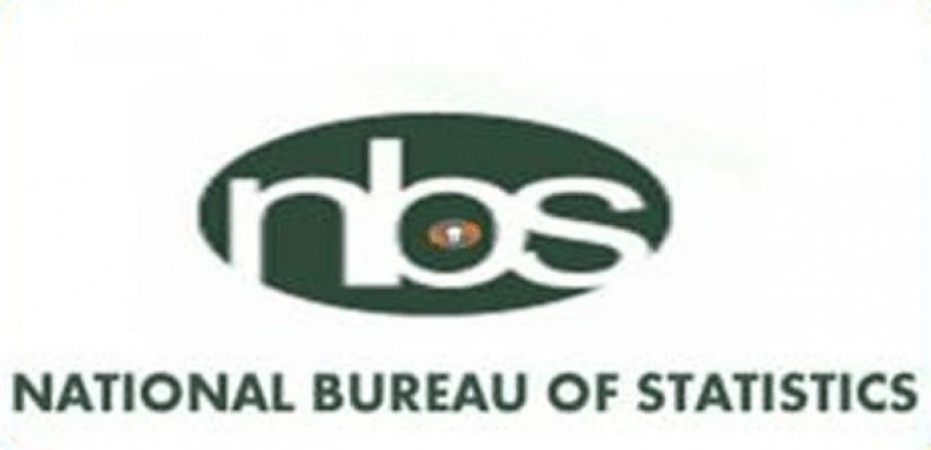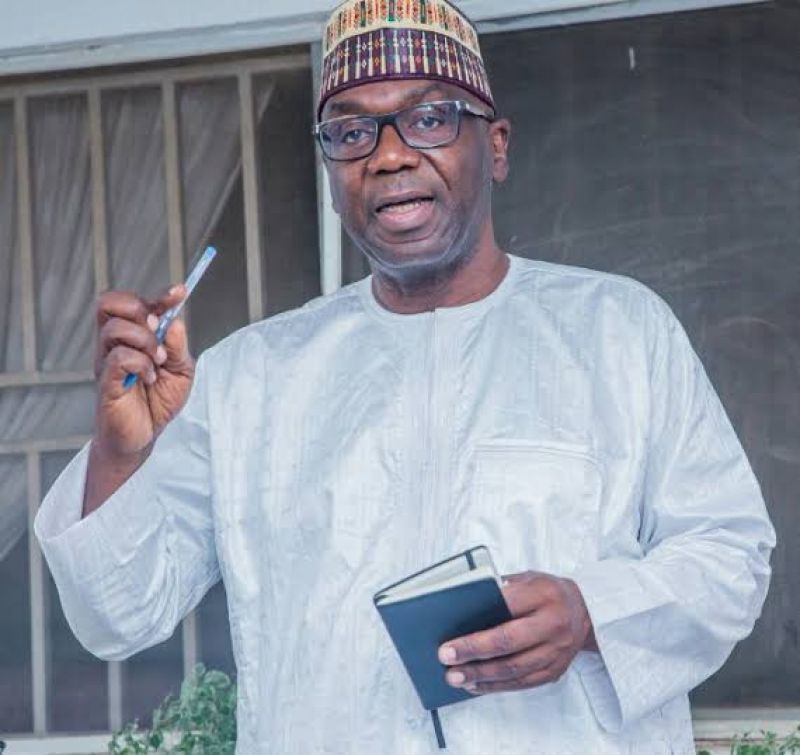COVID-19: Nigeria Has Carried Out 80,000 Tests ― PTF
Posted by FN Editor | 4 years ago | 1,180 times
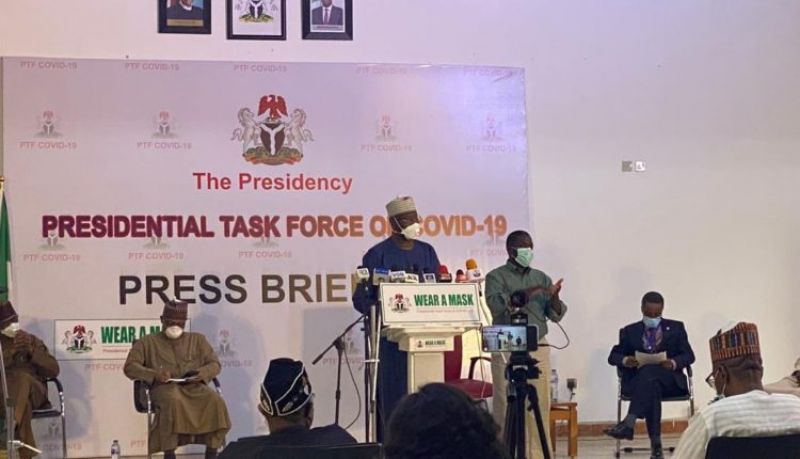
• 4,000 Nigeria abroad to undergo test before evacuation, pay for accommodation, transportation
After 100 days Nigeria recorded its index COVID-19 case, Presidential Task Force on COVID-19 pandemic said it had tested 80,000 citizens for the infection.
It has also built its testing laboratory capacity from two to 30 with a laboratory in every geopolitical zone in the country, providing increased access to testing.
The chairman of the Presidential Task Force on COVID-19 pandemic and Secretary to Government of the Federation (SGF), Mr Boss Mustapha, disclosed these as part of the achievements of the task force during a briefing in Abuja on Monday.
He said that a review of the 100 days also showed that over 13,000 health workers have been trained, increasing the human resource available for case management.
Similarly, more personal protective equipment and ventilators have been procured and prepositioned across the country while the number of beds available for isolation and case management has increased from 3000 beds to 5000 beds nationwide.
He pointed out that the PTF has developed new guidelines for homecare and general case management and evacuated over 1,000 Nigerians from different parts of the world while still reviewing the evacuation and quarantine protocols.
According to him, other achievements made during the period include enhancing the efficiency of the identification, testing, evacuation, and isolation process for confirmed cases and gradually reopening the economy while balancing between lives and livelihood.
He added: “A Mid Action Review has been conducted in line with WHO guidelines, with lessons and recommendations being used to improve the response; introduced Community Engagement and Risk Communication as critical factors that will help to flatten the curve in a sustainable manner; and engaged with development partners and the private sector to grow the capacity of the nation in the response.”
Mustapha said the PTF also introduced several non-pharmaceutical interventions to slow down the spread of the virus.
“There are several on-going infrastructure interventions being made by the government, development partners and the private sector nationwide,” he added.
The SGF further said: “The last hundred days have also brought out the best in the spirit of Nigerians. There has been tremendous private sector and corporate mobilisation. Similarly, individuals have also sacrificed their little savings for the good of all.
“What these underscores are the strength of our communal culture and unity in diversity. The PTF thanks everyone for giving hope in the face of a global pandemic, even when humanity seemed helpless
“In spite of these accomplishments, Nigeria, like the rest of the world has witnessed a steady rise in the number of infections. As at midnight on Sunday 7th June, Nigeria had the following statistics: confirmed cases: 12,486, discharged 3,959, fatalities: 354.”
He affirmed that based on the trend, science and data as guiding beacons, it has become obvious that Nigeria has entered the community transmission phase, which he said has significantly helped in identifying 20 high burden local government areas that accounts for over 60% of infections in Nigeria.
He said the PTF is already pursuing precision actions on these high burden local government areas, saying: “It is therefore important for Nigerians to recognize the need to take responsibility and the significant role community ownership and risk communication will play in the future of our National Response.”
The PTF boss stated that a major outcome of the 100 days assessment is the recognition of the need for states to scale up responsibility for their public health response.
He said in the medium to long term, the task force hopes to build a network of state public health labs that will bring about sustainability in public health response in Nigeria.
While noting that since the commencement of the National Response, a lot of priority has been given to physical health management of people who are affected, he announced that PTF has commenced the process of integrating comprehensive psychological services program into its activities.
According to him, “this will be for the benefit of people who are in isolation, the wellbeing of their families and communities.”
He praised the Federal Medical Center, Jabi, FCT for “spearheading this drive, which shall inevitably assume a national dimension because of the importance of mental health.”
On the easing ease of restriction on places of worship, he maintained that it is important to note that the guidelines gave states the latitude and the opportunity to negotiate protocols that meet their peculiarities.
Mustapha, therefore, urged religious leaders and the entire populace to adhere to the guidelines issued by the PTF and the protocols agreed by the state governments as the task force continues to monitor compliance nationwide.
“The PTF wishes to emphasize that a great majority of Nigerians are still susceptible to COVIDー19, and if we allow it to transmit easily between us, it may be even more deadly. If everyone diligently observes the guidelines, we can collectively control the spread of the virus, and help to protect our health facilities as well as save lives,” he added.
In his remark, the PTF National Coordinator, Dr Sani Aliyu, revealed changes to the evacuation of Nigerians abroad exercise, saying that they will now be required to undergo COVID-19 test before boarding their flight.
He also said that government planned to evacuate 1,000 Nigerians weekly, noting that the government will no longer be responsible for their accommodation and transportation within the period of their isolation b
He explained: “I’ll like to start by thanking those Nigerians that are currently abroad for their patience and understanding while we review the protocol. It’s essential that we get it right this time around. It’s also important that we make the best use of the public resources available to us so that we’ll have an arrangement that is sustainable and that will allow the more than 4,000 Nigerians that are currently outside the country to come in.
“At the same time, the PTF is also to have the responsibility of mitigating risks and ensuring that we do not increase the number of COVID-19 cases we have in the country, or increase the risk of transmission.
“We’ve gone through the protocol today and effectively, it’s been signed off, but there’ll be additional works required across the various agencies of government to make sure that things go smoothly, but strictly speaking, I don’t see any reason why this cannot proceed as quickly as possible.
“Just to clarify, this is teamwork with different government agencies ranging from the Federal Ministry of Health, the NCDC, Federal Ministry of Foreign Affairs, the Nigeria Diaspora Commission, Immigration Authority, security agencies and the Aviation Sector.
“The key part of the proposal is that there will be a need for Nigerians that are currently outside the country to the PCR test for COVID-19 before they board. This test needs to be valid at least for 14 days. In other words, if the test is done beyond 14 days, it will not be accepted.
“They will be required to provide an undertaking that they will follow the necessary precautions that we have we have applied when they come into the country. These will include the need for them to make themselves available for a repeat PCR test in the country within 72 hours of their arrival.
“They will also be required to stay at the point of entry, being Lagos and Abuja for now because these are the two cities where flights will be coming for now. They will need to stay in Abuja or Lagos and make arrangements for their own accommodation in these two cities for the period of 14 days.
“The main difference with what we have been doing in the past is that unlike in the past, we will not be responsible for the transportation or accommodation of Nigerians coming in. They’ll need to make their own alternative arrangements to stay in Lagos or Abuja, not only for the period of testing but also for the period of isolation. But they can, if they wish, stay at home.”
Readers Comments
comment(s)
No comments yet. Be the first to post comment.
